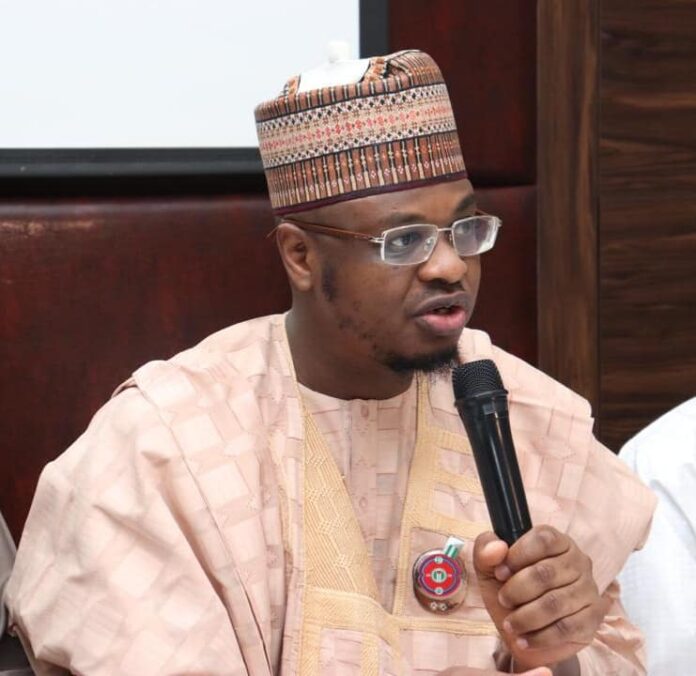The National Committee on the Implementation of the National Blockchain Policy for Nigeria has been officially launched by Prof. Isa Pantami, Minister of Communications and Digital Economy.
The Committee is made up of representatives from 29 organizations in the public, private, and academic sectors.
32,022 Nigerians received their diplomas from the Federal Government’s Blockchain Technology training program during the ceremony held on Tuesday in Abuja. The program was designed to give citizens the skills needed to implement the policy.
The National Information Technology Development Agency, the Central Bank of Nigeria, the National Universities Commission, the Securities and Exchange Commission, and the Nigerian Communications Commission are among the regulatory bodies that the President, Major General (Retd) Muhammadu Buhari, directed to develop regulatory instruments for the deployment of blockchain technology across the various sectors of the economy on May 3.
Nigeria’s National Blockchain Policy was created to act as a roadmap for the country’s adoption and use of cutting-edge technology.
“The Blockchain policy remains one of the emerging technologies at achieving the desired progress in the seventh pillar of the National Digital Economy Policy and Strategy for a Digital Nigeria, which is a “Digital Society & Emerging Technologies,” Pantami said during the committee’s inauguration.
“We had to develop other policies, including Policy on Artificial Intelligence and Robotics,” he continued, “in order to implement the seventh pillar, and it brought about the establishment of the first National Centre for Artificial Intelligence and Robotics (NCAIR) in Africa, located here in Abuja.”Additionally, we created the National Blockchain Policy for Nigeria as part of our efforts to implement the policy, particularly pillar number seven,” Pantami said.
Read Also: NASS Complex will not be ready until August: FCDA
The minister, who also emphasized the significance of technology to the country’s effort to develop a digital economy, noted that the fourth industrial revolution, in comparison, is the one that has not cast Africa into the background. This is especially true given that African nations, particularly Nigeria, are actively participating in the revolution, which, according to the minister, is an extension of the third revolution.
“Blockchain Technology, Artificial Intelligence (AI), Robotics, Cloud & Quantum Computing, Virtual & Augmented Reality, Autonomous Vehicle, Biotechnology, 5G, and Cyber Security are all disruptive technologies brought about by the Fourth Industrial Revolution,” the minister insisted. “Nigeria is one of the, at least three countries in Africa, that are actively involved in the 4th Industrial Revolution.”The policy’s successful implementation, which lays out a thorough framework for incorporating the technology into various facets of the economy, will ensure the development of local talent in the field of Blockchain Technology solution development, creating a strong and globally competitive ecosystem and effectively addressing key issues like governance, security, interoperability, regulatory compliance, accountability, and transparency.
He said that among other things, it would “boost innovation, improve government services, create job opportunities, propel economic growth, enhance public confidence in governance, and promote citizen engagement.”
The National Policy on Blockchain Technology for Nigeria brings the total number of policies Pantami has developed, launched, and is overseeing through various stages of implementation to 21.
Join Television Nigerian Whatsapp Now
Join Television Nigerian Facebook Now
Join Television Nigerian Twitter Now
Join Television Nigerian YouTUbe Now





